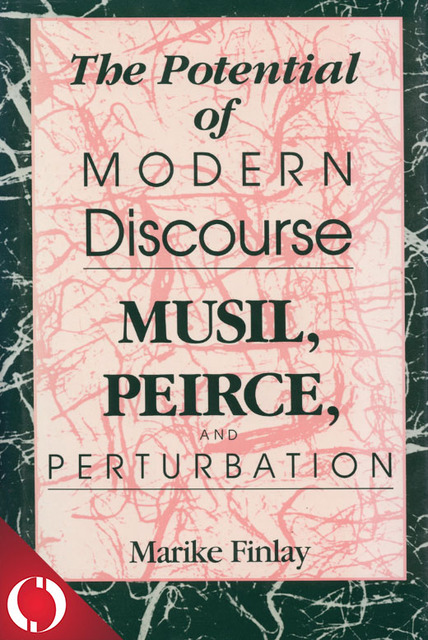The Potential of Modern Discourse
Musil, Peirce, and Perturbation
The postmodern response to the century-old crisis of classical discourse (which called into question the possibility of a fixed, objective, and absolute knowledge) has been to declare the death of the subject, and the end or absence of meaning. The Potential of Modern Discourse seeks to recover for contemporary discourse an alternative possibility by returning to the modernist project of linking ethics, politics, and the discourse of knowledge.
In the multiple, ironic discourses of Robert Musil, the semiotics of Charles Sanders Peirce, and the physics of Werner Heisenberg, Marike Finlay finds the basis for a new discourse of knowledge. In her pragmatic, consensualmodel, meaning and truth are not objectively or unilaterally established, but rather "triadically" co-constructed as realtionship among "object," "representamen" (or "sign"), and "interpretant" (the terms are Peirce's), and this triadic realtionship is constantly shifting through time and space.
By approaching Musil's The Man without Qualities as discourse, Finlay finds in it a re-presentation of the theory of knowledge implicit in the Peircean triadicity and Heisenber's philosophy of physics. Her reading constitutes one of the first attempts to apply Peircean semiotics to a literary work. in Musil's modernist response to the crisis of representation, Finlway discovers an alternative to the postmodernist complete deconstruction of sense.

Table of Contents
Metadata
- isbn978-0-253-05580-4
- publisherIndiana University Press
- publisher placeBloomington, Indiana USA
- restrictionsCC-BY-NC-ND
- rightsCopyright © Trustees of Indiana University
- rights holderIndiana University Press
- rights territoryWorld
- doi
We use cookies to analyze our traffic. Please decide if you are willing to accept cookies from our website. You can change this setting anytime in Privacy Settings.


